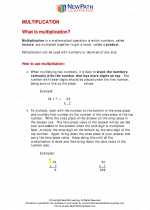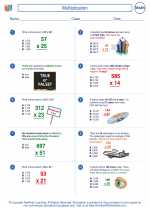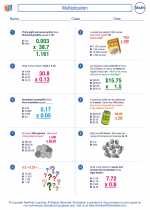Equality
Equality refers to the state of being equal, especially in status, rights, and opportunities. In mathematics, equality is a relationship between two expressions that represent the same value. The symbol "=" is used to indicate equality.
Types of Equality
There are two main types of equality in mathematics:
- Numerical Equality: This type of equality refers to the equality of two numerical values, such as 4 = 2 + 2.
- Variable Equality: In this type, variables are used to represent unknown values, and equations are used to show the equality of two expressions, such as x + 3 = 7.
Properties of Equality
When working with equations, it's important to understand the properties of equality:
- Reflexive Property: For any number a, a = a.
- Symmetric Property: If a = b, then b = a.
- Transitive Property: If a = b and b = c, then a = c.
- Addition Property of Equality: If a = b, then a + c = b + c.
- Subtraction Property of Equality: If a = b, then a - c = b - c.
- Multiplication Property of Equality: If a = b, then a * c = b * c (c ≠ 0).
- Division Property of Equality: If a = b, then a / c = b / c (c ≠ 0).
Study Guide
Here are some key points to remember when studying equality:
- Understand the concept of equality as a relationship between two expressions that represent the same value.
- Learn the different types of equality, including numerical equality and variable equality.
- Memorize the properties of equality and understand how they are used to manipulate equations.
- Practice solving equations to reinforce your understanding of equality and its properties.
By mastering the concept of equality and its properties, you will be able to solve various mathematical problems involving equations and expressions.
[Equality] Related Worksheets and Study Guides:
.◂Math Worksheets and Study Guides Sixth Grade. Multiplication
Study Guide Multiplication
Multiplication  Worksheet/Answer key
Worksheet/Answer key Multiplication
Multiplication  Worksheet/Answer key
Worksheet/Answer key Multiplication
Multiplication  Worksheet/Answer key
Worksheet/Answer key Multiplication
Multiplication 

 Worksheet/Answer key
Worksheet/Answer key
 Worksheet/Answer key
Worksheet/Answer key
 Worksheet/Answer key
Worksheet/Answer key

The resources above cover the following skills:
The Number System
Compute fluently with multi-digit numbers and find common factors and multiples.
Fluently multiply and divide multi-digit whole numbers using the standard algorithm. Express the remainder as a whole number, decimal, or simplified fraction; explain or justify your choice based on the context of the problem.